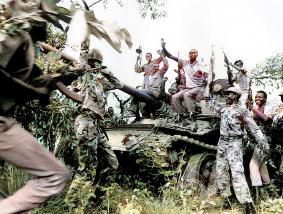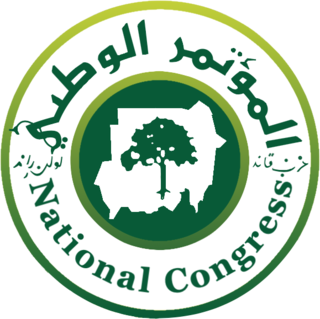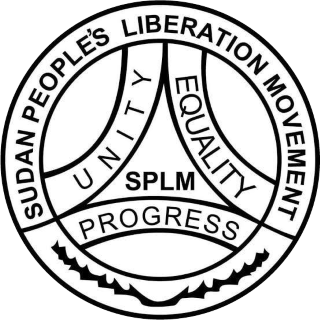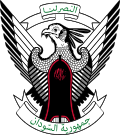Problematic decisions
By the time Dhahab seized power, Sudan's economy was in shambles. The country's international debt was approximately US$9 billion. Agricultural and industrial projects funded by the International Monetary Fund (IMF) and the World Bank remained in the planning stages. Most factories operated at less than 50 percent of capacity, while agricultural output had dropped by 50 percent since 1960. Moreover, famine threatened vast areas of southern and western Sudan.
The TMC lacked a realistic strategy to resolve these problems. The Dhahab government refused to accept IMF economic austerity measures. As a result, the IMF, which influenced nearly all bilateral and multilateral donors, in February 1986, declared Sudan bankrupt. Efforts to attract a US$6 billion twenty-five-year investment from the Arab Fund for Economic and Social Development failed when Sudan mismanaged an initial US$2.3 billion investment. A rapid expansion of the money supply and the TMC's inability to control prices caused a soaring inflation rate. Although he appealed to forty donor and relief agencies for emergency food shipments, Dhahab was unable to prevent famine from claiming an estimated 400,000 to 500,000 lives. He also failed to end hostilities in the south, which constituted the major drain on Sudan's limited resources.
Shortly after taking power, Dhahab adopted a conciliatory approach toward the south. Among other things, he declared a unilateral cease-fire, called for direct talks with the SPLM, and offered an amnesty to rebel fighters. The TMC recognized the need for special development efforts in the south and proposed a national conference to review the southern problem. However, Dhahab's refusal to repeal the sharia negated these overtures and convinced SPLM leader Garang that the Sudanese government still wanted to subjugate the south.
Despite this gulf, both sides continued to work for a peaceful resolution of the southern problem. In March 1986, the Sudanese government and the SPLM produced the Koka Dam Declaration, which called for a Sudan "free from racism, tribalism, sectarianism and all causes of discrimination and disparity." The declaration also demanded the repeal of the sharia and the opening of a constitutional conference. All major political parties and organizations, with the exception of the Democratic Unionist Party (DUP) and the National Islamic Front (NIF), supported the Koka Dam Declaration. To avoid a confrontation with the DUP and the NIF, Dhahab decided to leave the sharia question to the new civilian government. Meanwhile, the SPLA kept up the military pressure on the Sudanese government, especially in A'aly an-Nyl, Bahr al Ghazal, and Al Istiwai provinces.
Lack of consensus
The TMC's greatest failure concerned its inability to form a national political consensus. In late April 1985, negotiations between the TMC and the Alliance of Professional and Trade Unions resulted in the establishment of a civilian cabinet under the direction of Dr. Gazuli Dafalla. The cabinet, which was subordinate to the TMC, devoted itself to conducting the government's daily business and to preparing for the election. Although it contained three southerners who belonged to the newly formed Southern Sudanese Political Association, the cabinet failed to win the loyalty of most southerners, who believed the TMC only reflected the policies of the deposed Nimeiri. As a result, Sudan remained a divided nation.
The other factor that prevented the emergence of a national political consensus concerned party factionalism. After sixteen years of one-party rule, most Sudanese favored the revival of the multiparty system. In the aftermath of Nimeiri's overthrow, approximately forty political parties registered with the TMC and announced their intention to participate in national politics. The political parties ranged from those committed to revolutionary socialism to those that supported Islamism. Of these latter, the NIF had succeeded the Islamic Charter Front as the main vehicle for the Muslim Brotherhood's political aspirations. However, policy disagreements over the sharia, the southern civil war, and the country's future direction contributed to the confusion that characterized Sudan's national politics.

The history of Sudan refers to the territory that today makes up Republic of the Sudan and the state of South Sudan, which became independent in 2011. The territory of Sudan is geographically part of a larger African region, also known by the term "Sudan". The term is derived from Arabic: بلاد السودان bilād as-sūdān, or "land of the black people", and has sometimes been used more widely referring to the Sahel belt of West and Central Africa.

Currently, the politics of Sudan takes place in the framework of a federal provisional government. Previously, a president was head of state, head of government, and commander-in-chief of the Sudanese Armed Forces in a de jure multi-party system. Legislative power was officially vested in both the government and in the two chambers, the National Assembly (lower) and the Council of States (higher), of the bicameral National Legislature. The judiciary is independent and obtained by the Constitutional Court. However, following a deadly civil war and the still ongoing genocide in Darfur, Sudan was widely recognized as a totalitarian state where all effective political power was held by President Omar al-Bashir and his National Congress Party (NCP). However, al-Bashir and the NCP were ousted in a military coup which occurred on April 11, 2019. The government of Sudan was then led by the Transitional Military Council or TMC. On 20 August 2019, the TMC dissolved giving its authority over to the Sovereignty Council of Sudan, who were planned to govern for 39 months until 2022, in the process of transitioning to democracy. However, the Sovereignty Council and the Sudanese government were dissolved in October 2021.

Gaafar Muhammad an-Nimeiry was a Sudanese military officer and politician who served as the fourth head of state of Sudan from 1969 to 1985, first as Chairman of the National Revolutionary Command Council and then as President.

The Second Sudanese Civil War was a conflict from 1983 to 2005 between the central Sudanese government and the Sudan People's Liberation Army. It was largely a continuation of the First Sudanese Civil War of 1955 to 1972. Although it originated in southern Sudan, the civil war spread to the Nuba mountains and the Blue Nile. It lasted for almost 22 years and is one of the longest civil wars on record. The war resulted in the independence of South Sudan 6 years after the war ended.

The National Congress Party was a major political party that dominated domestic politics in Sudan from its foundation until the Sudanese Revolution.
The National Islamic Front was an Islamist political organization founded in 1976 and led by Dr. Hassan al-Turabi that influenced the Sudanese government starting in 1979, and dominated it from 1989 to the late 1990s. It was one of only two Islamic revival movements to secure political power in the 20th century.

The Sudan People's Liberation Movement is a political party in South Sudan. It was initially founded as the political wing of the Sudan People's Liberation Army in 1983. On January 9, 2005 the SPLA, the SPLM and the Government of Sudan signed the Comprehensive Peace Agreement, ending the civil war. SPLM then obtained representation in the Government of Sudan, and was the main constituent of the Government of the then semi-autonomous Southern Sudan. When South Sudan became a sovereign state on 9 July 2011, SPLM became the ruling party of the new republic. SPLM branches in Sudan separated themselves from SPLM, forming the Sudan People's Liberation Movement–North. Further factionalism appeared as a result of the 2013–2014 South Sudanese Civil War, with President Salva Kiir leading the SPLM-Juba and former Vice President Riek Machar leading the Sudan People's Liberation Movement-in-Opposition.

The Democratic Unionist Party, also referred to by itself as the Original Democratic Unionist Party, is a political party in Sudan, closely tied to the Khatmiyya Sufi order.

The Republic of the Sudan was established as an independent sovereign state upon the termination of the condominium of Anglo-Egyptian Sudan, over which sovereignty had been vested jointly in Egypt and the United Kingdom. On December 19, 1955, the Sudanese parliament, under Ismail al-Azhari's leadership, unanimously adopted a declaration of independence that became effective on January 1, 1956. During the early years of the Republic, despite political divisions, a parliamentary system was established with a five member Supreme Commission as head of state. In 1958, after a military coup, General Ibrahim Abboud was installed as president. The Republic was disestablished when a coup led by Colonel Gaafar Nimeiry founded the Democratic Republic of Sudan in 1969.

On 25 May 1969, several young officers calling themselves the Free Officers Movement seized power in Sudan in a coup d'état and started the Nimeiry era, also called the May Regime, in the history of Sudan. At the conspiracy's core were nine officers led by Colonel Gaafar Nimeiry, who had been implicated in plots against the Abboud regime. Nimeiry's coup preempted plots by other groups, most of which involved army factions supported by the Sudanese Communist Party (SCP), Arab nationalists, or conservative religious groups. He justified the coup on the grounds that civilian politicians had paralyzed the decision-making process, had failed to deal with the country's economic and regional problems, and had left Sudan without a permanent constitution.

This article covers the period of the history of Sudan between 1985 and 2019 when the Sudanese Defense Minister Abdel Rahman Swar al-Dahab seized power from Sudanese President Gaafar Nimeiry in the 1985 Sudanese coup d'état. Not long after, Lieutenant General Omar al-Bashir, backed by an Islamist political party, the National Islamic Front, overthrew the short lived government in a coup in 1989 where he ruled as President until his fall in April 2019. During Bashir's rule, also referred to as Bashirist Sudan, or as they called themselves the al-Ingaz regime, he was re-elected three times while overseeing the independence of South Sudan in 2011. His regime was criticized for human rights abuses, atrocities and genocide in Darfur and allegations of harboring and supporting terrorist groups in the region while being subjected to United Nations sanctions beginning in 1995, resulting in Sudan's isolation as an international pariah.

The Libyan–Sudanese relations refers to the long historical relations between Libya and Sudan, both are Arab countries.
The Government of Sudan is the federal provisional government created by the Constitution of Sudan having executive, parliamentary, and the judicial branches. Previously, a president was head of state, head of government, and commander-in-chief of the Sudanese Armed Forces in a de jure multi-party system. Legislative power was officially vested in both the government and in the two houses – the National Assembly (lower) and the Council of States (upper) – of the bicameral National Legislature. The judiciary is independent and obtained by the Constitutional Court. However, following the Second Sudanese Civil War and the still ongoing genocide in Darfur, Sudan was widely recognized as a totalitarian state where all effective political power was held by President Omar al-Bashir and his National Congress Party (NCP). However, al-Bashir and the NCP were ousted in a military coup on April 11, 2019. The government of Sudan was then led by the Transitional Military Council (TMC). On 20 August 2019, the TMC dissolved giving its authority over to the Transitional Sovereignty Council, who were planned to govern for 39 months until 2022, in the process of transitioning to democracy. However, the Sovereignty Council and the Sudanese government were dissolved in October 2021.

The Sudanese Communist Party is a communist party in Sudan. Founded in 1946, it was a major force in Sudanese politics in the early post-independence years, and was one of the two most influential communist parties in the Arab world, the other being the Iraqi Communist Party.

The 1971 Sudanese coup d'état was a short-lived communist-backed coup, led by Major Hashem al Atta, one of the founding members of the free officers organization that carried out a coup two years prior, against the government of President Gaafar Nimeiry. The coup took place on 19 July 1971, toppling the government of the Democratic Republic of the Sudan, but failed to garner support either domestically or internationally. After several days Nimeiry loyalists launched a counter-coup, freeing Nimeiry and toppling Atta's government.
The 1985 Sudanese coup d'état was a military coup that occurred in Sudan on 6 April 1985. The coup was staged by a group of military officers and led by the Defense Minister and Armed Forces Commander-in-Chief, Field Marshal Abdel Rahman Swar al-Dahab, against the government of President Gaafar Nimeiry.
The Islamist movement in Sudan started in universities and high schools as early as the 1940s under the influence of the Egyptian Muslim Brotherhood. The Islamic Liberation Movement, a precursor of the Sudanese Muslim Brotherhood, began in 1949. Hassan Al-Turabi then took control of it under the name of the Sudanese Muslim Brotherhood. In 1964, he became secretary-general of the Islamic Charter Front (ICF), an activist movement that served as the political arm of the Muslim Brotherhood. Other Islamist groups in Sudan included the Front of the Islamic Pact and the Party of the Islamic Bloc.
The legal system of Sudan has evolved over time. The legacy of British colonial rule has had a significant impact even after independence. Most of the lawyers and judges were British trained and initially tended to rely on judicial precedent. Soon after independence, however, pressure began to build to change the legal system. By the time Jaafar Nimeiry seized power in 1969, a commission had been working on recommendations for a new system, but he dissolved it and formed another commission dominated by 12 Egyptian jurists. Based on recommendations received from them, Sudan adopted a new civil code that looked much like the Egyptian civil code of 1949. The new system was controversial because it disregarded existing laws and customs and introduced many new legal terms and concepts from Egyptian law without source material to interpret the codes. In 1973 the government repealed these codes and returned the legal system to its pre-1970 common-law status. In 1977 Nimeiry agreed to consider a Muslim Brotherhood demand that the system be based on Islam. He appointed al-Turabi as chairman of a committee to draft new Islamic laws. Nimeiry accepted few of the proposals from this committee. He then established a small, new group in 1983 that developed a “cut-and-paste” version of sharia laws based on practice in other countries. In September 1983, Nimeiry issued several decrees, known as the September Laws, which made sharia the law of the land.

Following the 1976 coup attempt, a national reconciliation was reached in Sudan on 7 July 1977, where Nimeiri and al-Mahdi signed an agreement that readmitted the opposition in exchange for the dissolution of the National Front. Civil liberties were restored, and political prisoners were released. The reconciliation also involved shifts in Sudanese politics, with the adoption of Islamic law, known as September Laws, in 1983. Nimeiri faced opposition from various groups, including secularised Muslims and non-Muslim southerners. This move contributed to the resumption of the civil war in the south, leading to conflicts and political shifts.

In September 1983, Sudanese president Gaafar Nimeiry introduced Islamic sharia laws in Sudan, known as September Laws, disposing of alcohol and implementing hudud punishments such as public flogging for alcohol consumption and amputations for theft. Nimeiry declared himself the imam of the "Sudanese umma", leading to concerns about the undemocratic implementation of these laws. Hassan al-Turabi assisted with drafting the law and later supported the laws, unlike, the leader of the opposition, Sadiq al-Mahdi's dissenting view.













